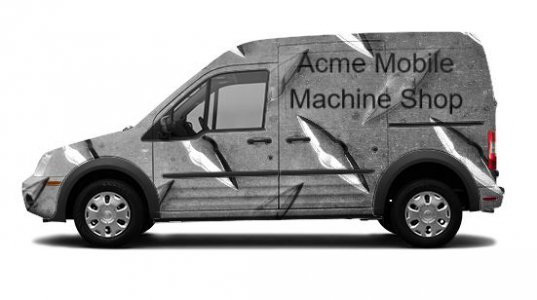- Joined
- Sep 8, 2019
- Messages
- 4,392
I have looked at this before, but I ended up looking at a ridiculously large bank of 12V batteries or solar panels. Now I am planning to idle the vehicle while I work on the lathe.
What I am trying to do is (brace yourself!) put my 10X30 lathe in a van. The motor is a 1HP BLDC, and the lathe has a DRO. The lathe is currently plugged in to a 15A, 110V circuit in my shop, but I really do need to take it on the road. The lathe will spend the rest of it’s life in a van.
The lathe draws up to 7A while in use, but I wonder what the maximum startup current may be (if that is even an issue). If I needed to draw even 30A to get it going, then p=iv is 30A X 110V = 3300W. If I bought an inverter larger than 3300W, wouldn’t that power the lathe if I kept the vehicle idling?
What I am trying to do is (brace yourself!) put my 10X30 lathe in a van. The motor is a 1HP BLDC, and the lathe has a DRO. The lathe is currently plugged in to a 15A, 110V circuit in my shop, but I really do need to take it on the road. The lathe will spend the rest of it’s life in a van.
The lathe draws up to 7A while in use, but I wonder what the maximum startup current may be (if that is even an issue). If I needed to draw even 30A to get it going, then p=iv is 30A X 110V = 3300W. If I bought an inverter larger than 3300W, wouldn’t that power the lathe if I kept the vehicle idling?
Last edited:



